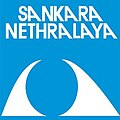Expansion
Sankara Nethralaya has been branching out very fast recently. Apart from the five centres in Chennai and in Kolkata and Rameswaram, the hospital is now present in Bengaluru, Tirupati, Andhra Pradesh, Jharkhand as TTD Sri Srinivasa Sankara Nethralaya and mobile eye surgical unit.
The Medical Research Foundation focuses on providing "world-class eye care, community services, research and education -- broadly recognized as the four pillars of the Foundation." [4] In January 2020, it was reported that the hospital collection crossed Rs. 200 crores (Rs 2000 million) for the first time, according to its annual report. [4] In 2018–19, the number of free surgeries in the FY 2018-19 was 22,810—some 36% of total surgeries. [4] It has Mobile Eye Surgery Units in three Indian states—Tamil Nadu, Andhra Pradesh and Jharkhand, which have conducted some 4520 totally free cataract surgeries in different villages across the three states. [4]
Branches
- Sankara Nethralaya Main Campus
- C. U. Shah Sankara Nethralaya
- JKCN
- Navasuja Sankara Nethralaya
- Sankara Nethralaya Super Speciality Clinic (SNSSC)
- Aditya Birla Sankara Nethralaya, Mukundapur, Kolkata
- kamalnayan Bajaj Sankara Nethralaya, New Town, Kolkata
- Mobile Eye Surgical Unit, Tatanagar, Jharkhand
- Sankara Nethralaya Optometry Clinic, Olympia Tech Park, Chennai
- Sankara Nethralaya, Rameshwaram
- Sri Srinivasa Sankara Nethralaya, Tirupati
International patients
Apart from receiving patients from all over the country, Sankara Nethralaya renders service to international patients including the US, UK and Bangladesh. Bangladesh was reported as having topped the number of foreign patients at the Chennai branch of Sankara Nethralaya. [6]
Yearly, some 56,000 Bangladeshi patients arrived in Chennai for eye care at Sankara Nethralaya, accounting for some 60% of all patients in the hospital. The tertiary ophthalmic hospital, provides treatment to patients particularly from South Asia—Sri Lanka, Bangladesh, Afghanistan; Africa—Kenya, Nigeria, South Africa, among other countries; and the Middle East including UAE and Oman. [6]
Academia
From its inception in 1978, the C U Shah Ophthalmic Postgraduate Training Center has been offering fellowship programmes in Vitreo-Retinal Surgery and General Ophthalmology to holders of postgraduate degree and a diploma in Ophthalmology. [7]
The Elite School of Optometry (ESO) is the first college of optometry in India offering a four-year professional degree: B.Optometry. It is run by Sankara Nethralaya in collaboration with SASTRA University, Tanjore from the academic year 2017–18. Previously, it functioned in collaboration with Birla Institute of Technology and Science (BITS), Pilani. [8] In August 2025, at its three-day International Vision Science and Optometry Conference, ESO launched a dedicated Sports Optometry Research Lab. [9]
The Sankara Nethralaya Academy serves as a platform for creating, processing and disseminating knowledge related to eye care, ophthalmic research and hospital administration. The institution offers wide-ranging programmes including allied health sciences like Optometry (M.Optom, Fellowships and Certificate courses), Ophthalmic Dispensing (B.Sc.), Medical Laboratory Technology (B.Sc. & M.Sc.), Hospital & Healthcare Management (BBA & MBA), Hospital Administration (MHA), etc...
The Vision Research Foundation (VRF) has, over the last two decades, been doing premier work in the areas of ocular infections, cataract, tumours, angiogenesis and genetic basis of eye diseases and pathobiology of other ophthalmic disorders. Scientists working with VRF have developed basic techniques in applied medical biotechnology essential to understand disease processes involved in ophthalmology particularly related to etiopathogenesis and identification of infectious, genetic and malignant disorders. VRF has applied for four patents in Diagnostic Microbiology. One of the patents awarded was on corneal limbal stem cell in vitro expansion [10] for treating ocular surface disorders jointly with Nichi-In Centre for Regenerative Medicine. [11]
Sankara Nethralaya Women's Auxiliary (SWAN)
Registered as a public charitable trust in 1984, SWAN volunteers have served Sankara Nethralaya. [13] All medical and post operative needs of poor patients, including food and spectacles, are taken care of by SWAN volunteers. This apart, SWAN volunteers assists patients in the hospital, help the Medical Records Department, Library, Patient service dept, organise conferences, events, maintain the STD booths, utility and coffee shop at the hospital premises. [13]
This page is based on this
Wikipedia article Text is available under the
CC BY-SA 4.0 license; additional terms may apply.
Images, videos and audio are available under their respective licenses.

